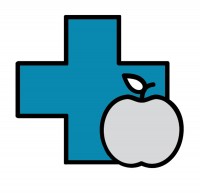Dmitry Burshteyn Ph.D., associate professor of psychology, and Jami Cotler, Ph.D., associate professor of computer science, joined forces to offer Adaptability, Accessibility, and Resilience at War/Conflict Times (PSYC490) and Trauma Informed UX Design (CSIS200). They and their 22 students traveled to Poland, where they spoke with refugees from the Ukrainian conflict, met with an international aid organization, and bore witness at the infamous Nazi death camp Auschwitz-Birkenau.
In Burshteyn’s psychology class, the focus was on resilience, empathy, and providing social support to war victims. Students began by exploring techniques and practices aimed at managing stress in times of uncertainty. They then did a deeper dive into understanding the complex nature of trauma in war zones and other conflict environments.


